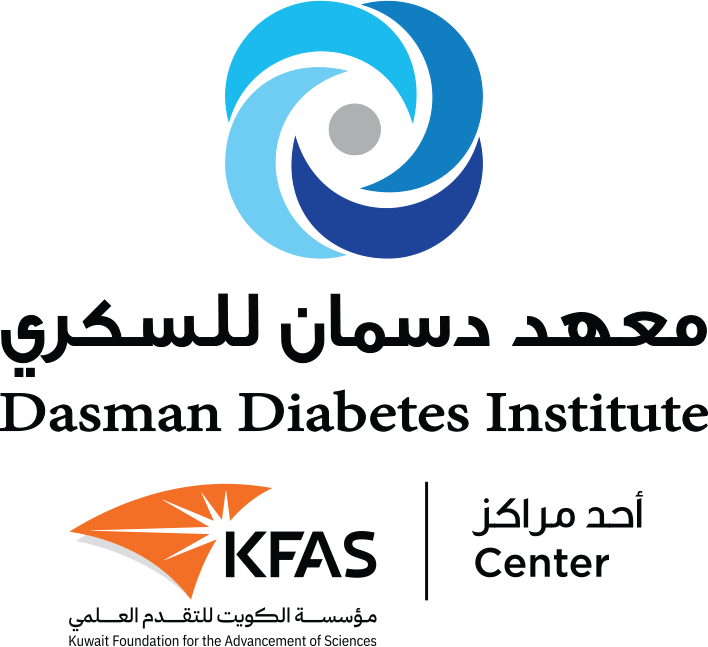DDI received the International Scientific Advisory Board Report
Published on 10/10/2022
The International Scientific Advisory Board (ISAB) is an independent and external scientific advisory board that is appointed by KFAS to strengthen internal research strategies and management capabilities at DDI. The board comprises international and local experts who conduct unbiased reviews of DDI’s performance on a periodic basis. The ISAB advises the senior management and Board of Trustees at DDI on clinical and scientific priorities. Members of the ISAB are internationally recognized experts with authority and legitimacy relevant to diabetes research and management in their respective countries.
The ISAB members who visited DDI in mid-2022 were Professors: Richard Kahn (Chairman), Maie Al-Bader (Kuwait University), John Buse (University of North Carolina, USA), Anders Green (University of Southern Denmark), Paolo Pozzilli (Queen Mary University of London, UK), and Michael Roden (Heinrich-Heine- University, Germany).
The ISAB members spent two days touring DDI’s facilities and attending meetings with each research group and provided the following recommendations:
The ISAB encourages DDI to venture out into more venues and show the Kuwaiti government and population how successful DDI has been, what it has done for the country, and its contributions toward diabetes research. The ISAB believes that DDI has accomplished quite a lot with moderate resources and that the institution should showcase its achievements more than it does. Kuwait and KFAS have much to be proud of.
GENETICS: This is a very productive department, owing to the quality of the scientists and the steadily growing funding, where novel studies are being performed and proposed. The ISAB suggested that the department would greatly benefit by having a close and active collaboration with a clinician so as to better understand clinical definitions, states, and treatments of the investigated disorders and diseases, and the possible relationships between genetic data and clinical conditions.
BIOCHEMISTRY: This department has been conducting excellent and comprehensive research on ANGPTL3 and Caveolin. The ISAB raised a strategic question as to whether the department should continue focusing on these specific molecules to seek an exhaustive understanding of their systemic pathophysiological involvement, or alternatively, shift their emphasis to better understand a process or a condition in which these molecules are involved (e.g., the etiology of obesity, metabolic syndrome, or adipose tissue dysfunction), owing to the wide variety of unresolved questions related to the complexity of tissue/organ function. This strategic decision depends on whether the investigators at DDI would benefit more (career development, opportunities for grants, collaborations, more room to explore on a topic) from being experts on one or two molecules than having expertise on a physiological process and its related pathologies. This should be thoughtfully considered by the highly qualified scientists in this department and the decisions should be proposed at the next ISAB meeting.
IMMUNOLOGY: At DDI, this department continues to perform excellent research and is extremely productive. The active collaborations remain beneficial for expanding productivity and mentoring the DDI staff.
To summarize, the ISAB members commented that: “DDI continues to grow and develop toward becoming a world-class institution. While there are many areas that will benefit from continued advice and guidance.” Finally, ISAB stated that: “Care must be taken not to over-stretch the limited resources available and to continue to focus even more on research that has special relevance to the Kuwaiti population or is not being conducted in many other institutions in the world that have far more resources.”
Finally, Prof. Fahd Al-Mulla believes that the ISAB provides insight and wise counsel regarding research caveats and in exploring new concepts. The CSO encourages all institutes in Kuwait to adopt similar external advisory board to enhance their management and research activities.



